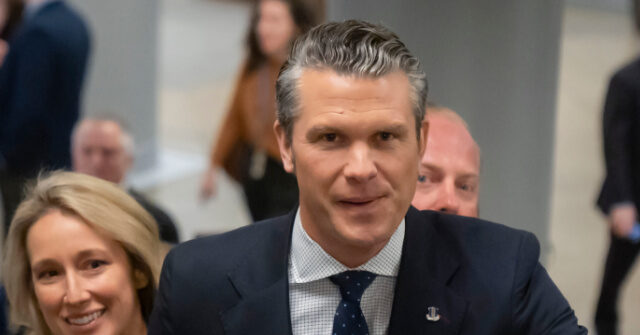Sen. Mike Rounds (R-SD) recently expressed cautious optimism regarding President-elect Donald Trump’s nomination of Pete Hegseth for Defense Secretary. Initially, Rounds, along with 14 other Republican senators, harbored reservations about Hegseth’s suitability for the role. However, after meeting with Hegseth and observing his efforts to engage with Senate members, Rounds noted that he sees a viable path for Hegseth to gain the Senate’s approval. Rounds emphasized the importance of the confirmation hearings, stating that they will provide Hegseth with the opportunity to address the concerns raised and demonstrate his qualifications for the position. He insists on the need for Hegseth to respond publicly to the questions surrounding his candidacy, acknowledging that while support is growing, there remains work to be done.
The confirmation process for cabinet nominees typically involves private meetings with senators before public hearings. Hegseth has been diligently meeting with senators since last week as part of this customary process. However, in the lead-up to these meetings, he has faced a significant onslaught of negative media coverage aimed at undermining his nomination. This barrage of hit pieces draws upon unverified claims and anonymous sources, some dating back over a decade. Among the accusations are allegations concerning a drinking problem and mismanagement of two organizations he led. Despite these challenges, many individuals who have worked with Hegseth have publicly countered these claims, asserting that they are baseless fabrications designed to derail his nomination.
The intensity of the smear campaign against Hegseth has consequently led some Republican senators to reconsider their support for his nomination and explore alternative candidates. The attempts to undermine his credibility have created a divisive atmosphere among Senate Republicans. Nevertheless, Hegseth has taken action to discredit these attacks by participating in media interviews and writing an op-ed for the Wall Street Journal that outlines his qualifications and commitment to serving in the Defense Secretary role.
Over the past few days, following Hegseth’s proactive defense and renewed backing from Trump, more Republican senators have shifted their stance and expressed support for his nomination. The shifting dynamics underscore the volatility of political support in the face of media scrutiny and highlight the importance of direct engagement and communication in the confirmation process. The expression of support from conservative media figures has also buoyed Hegseth’s chances, indicating a collective effort to rally behind him amid the challenges he faces.
Hegseth’s journey through the confirmation battle reflects broader themes of loyalty and trust within the Republican Party. His situation demonstrates how quickly political fortunes can change based on narrative and perception, especially in an environment charged with skepticism and scrutiny. Senators like Rounds become pivotal figures in this process, not only negotiating the terms of support but also influencing the overall direction of the nomination process. Thus, the forthcoming Senate hearings become critical, as they present Hegseth an opportunity to shift the narrative in his favor.
In conclusion, while Sen. Rounds remains hopeful about Hegseth’s confirmation prospects, the ongoing challenges posed by negative media coverage and internal party debates highlight the complexities of the nomination process. As Hegseth prepares for his public hearings, the responses he receives will likely dictate his chances of being confirmed as Defense Secretary. The interplay of media narratives, individual senator preferences, and Trump’s endorsement will shape the final outcome, encapsulating the intricate dance of political maneuvering that defines the landscape of cabinet confirmations.

